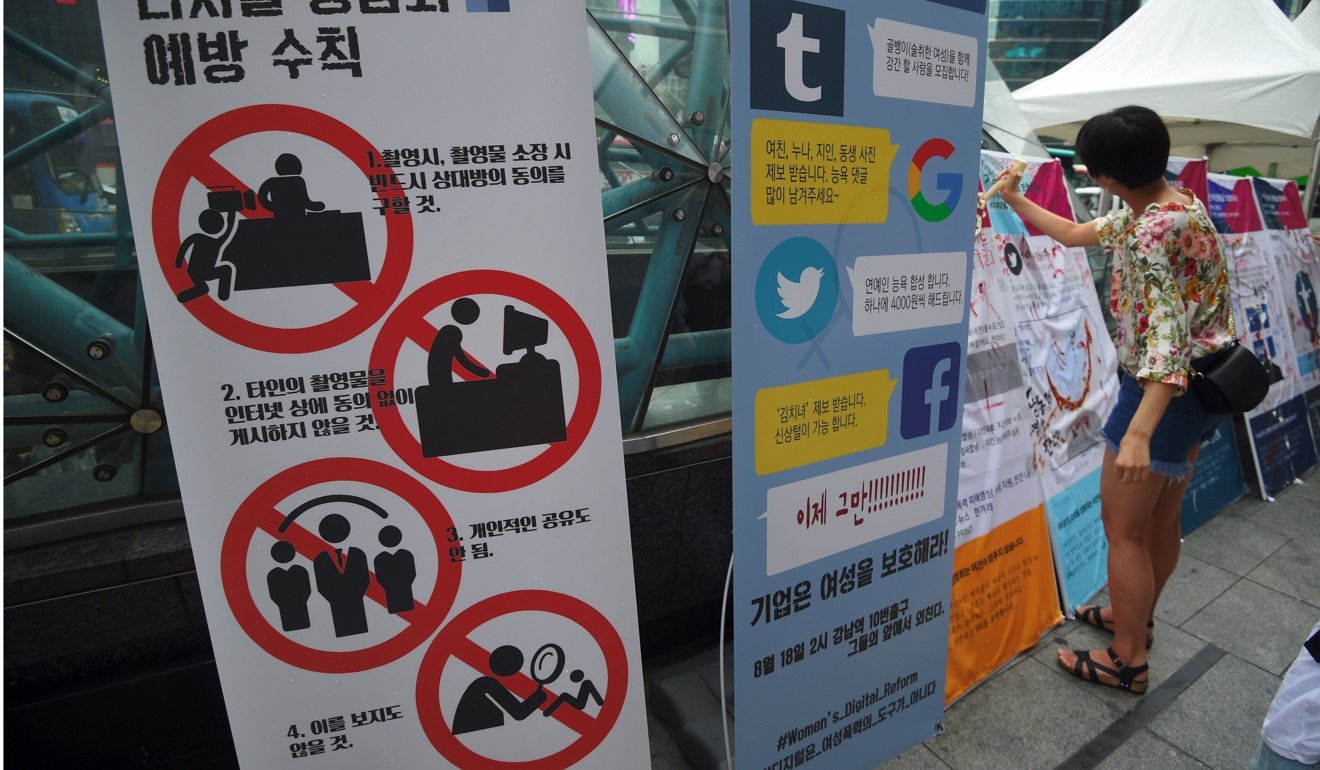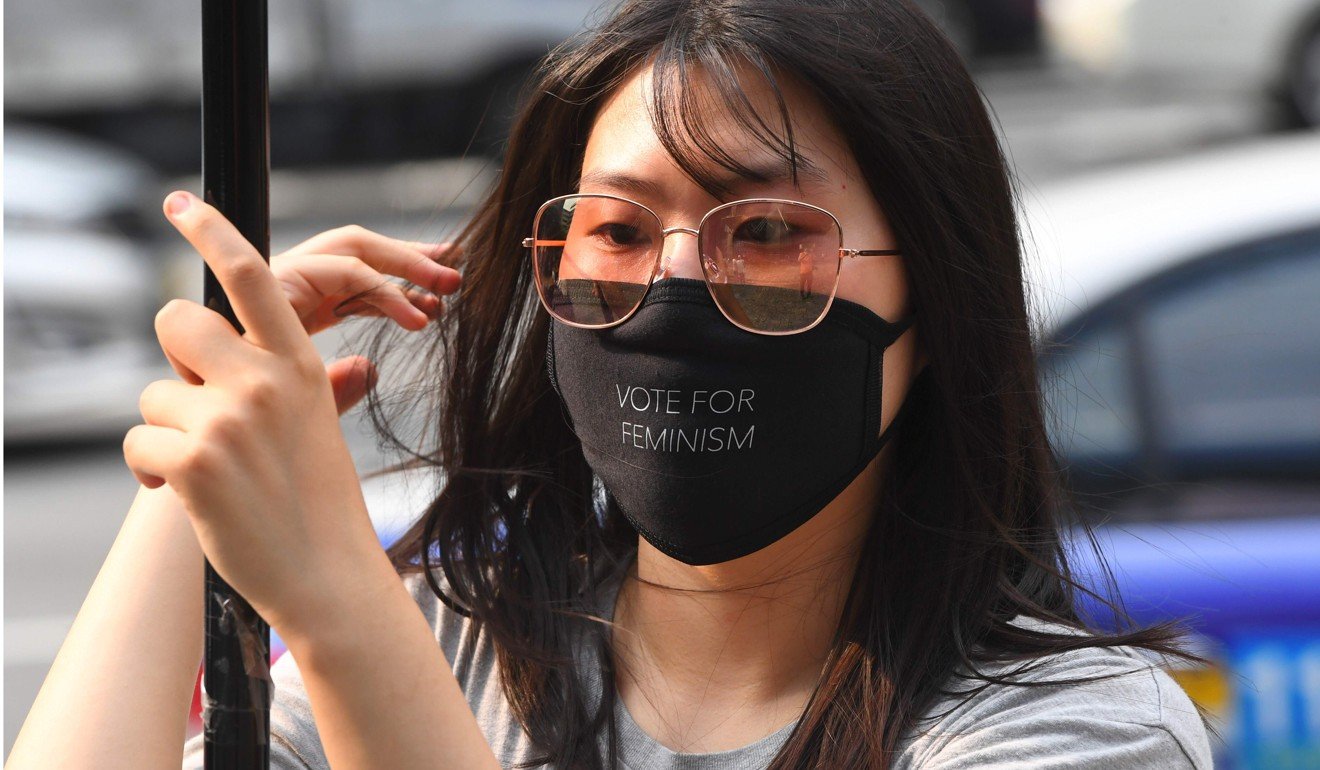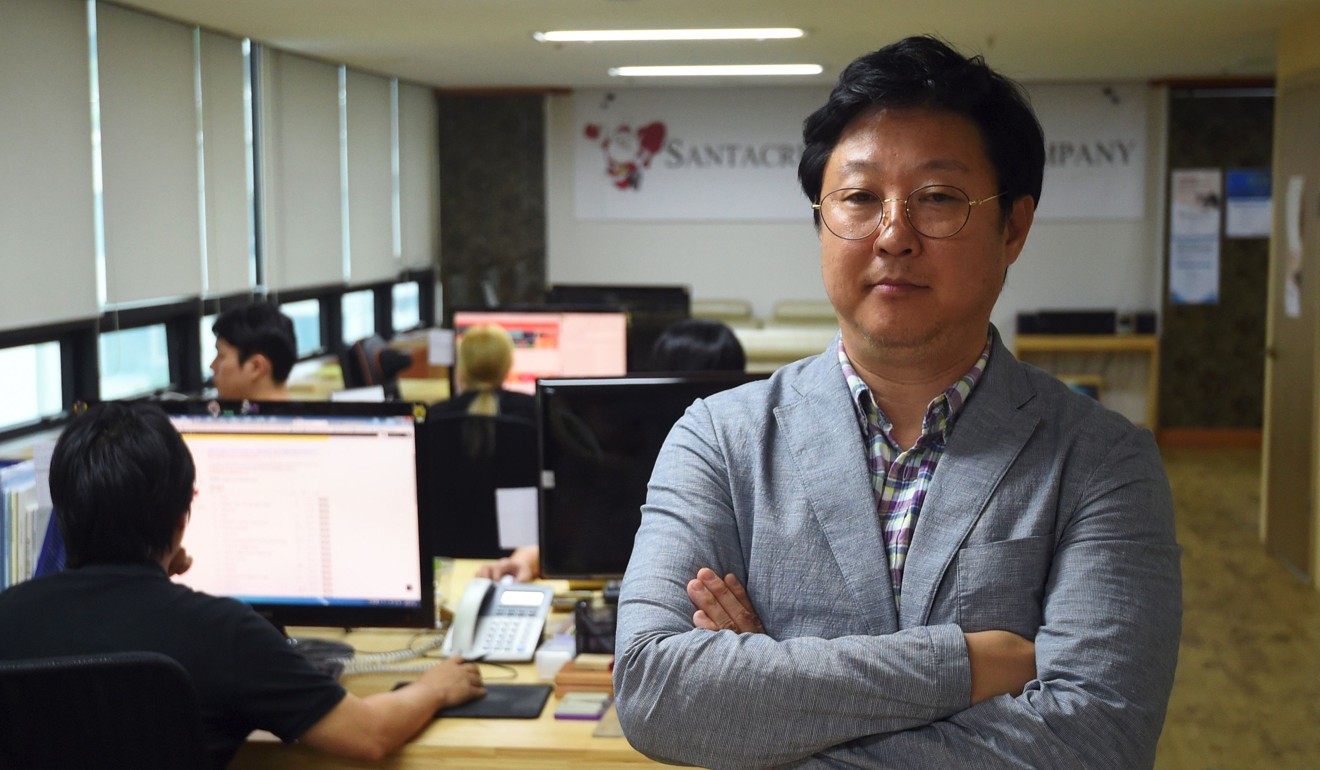
South Korea’s ‘digital laundry’ industry fighting revenge porn one hi-tech sex crime at a time
Tony Kim has been paid to watch porn for the last six years, spending his days staring at graphic videos of naked women and sexual liaisons.
He is part of an anti-revenge porn force in Seoul tasked with finding private sexual images posted online without permission, and removing them.
The 27-year-old first applied for the role at Santa Cruise out of “curiosity”, he said.
“But I soon started to feel very uncomfortable, having to watch videos like this all day long, day in and day out. Now I’m used to this and feel nothing ... It is just a job now.”

The bleak business is part of the “digital laundry” industry thriving in South Korea.
Chief Executive Officer Kim Ho-jin set up Santa Cruise in 2008, initially specialising in removing malicious online rumours or inaccurate information for companies and celebrities.
But a new type of client has emerged – women whose private sex videos and photographs were posted online without permission by disgruntled ex-boyfriends, ex-husbands, or malicious acquaintances.

“We monitor various porn, P2P (peer to peer networks) and social media sites around the clock, because such leaked videos could pop up at any time and over and over for years,” said Kim.
In South Korea, 7,325 requests to have intimate videos removed from the internet were made in 2016, according to government figures – a sevenfold increase in four years.

Seoul recently announced a sweeping policy package to battle the online sex crimes, including a plan to make a prison term the minimum sentence for such crimes.
“Most offenders are teenage boys or men in their 20s who want to see pretty, popular girls out of their reach being abused and humiliated online,” Kim explained.

One victim, whose name was withheld, said she quit her job and cut all contact with friends and family after her video emerged online.
At present only six per cent of convicted uploaders are sentenced to prison, according to a study by the Korea Women Lawyers Association, with around 65 per cent being fined.
The anonymous victim said the man who posted their intimate video online was only fined 1 million won (US$900) and the website that displayed it ordered to pay a 3 million won penalty.

“These websites scoff at the fine and never change, because they earn enormous profits every month by advertising and spreading videos of women like me,” she said.
Around 140 women sign up for Santa Cruise’s services each month, according to Kim.
Some have found footage of themselves – often via a male acquaintance sending them a link asking “Is that you?” – while others are simply concerned that such images may have been shared.
Once Santa Cruise finds a video, the firm contacts the website operator to have it taken down, warning it has violated privacy laws.

“No matter how many times we take it down, it’s nearly impossible to delete such videos completely from the internet,” he said.
The service costs two million won (US$1,750) a month – almost two-thirds of the country’s average wage – a price Kim defends, saying the monitoring effort goes on around the clock.
But he fears the worst if clients running out of funds drop out of contact.
“When I’ve called them, sometimes their parents answered the phone, saying their daughter is dead.”

.png?itok=arIb17P0)